It is very difficult for the community leaders in the communities that surround the Ol Pejeta Consevancy to be able to select the most vulnerable for assistance by PA-MOJA, as almost everyone is needy. Every summer PA-MOJA volunteers visit Kenya and do cultural exchanges between the sister schools in Kenya and those in Canada and USA. They also visit the PA-MOJA bursary beneficiary students and follow up on their academic performance at school. In addition they also participate in charity work like uplifting the lives of the most vulnerable families in the locality. They do this through Ol Pejeta Conservancy community staff and the community local leaders who also involve community representatives chosen by the community members.
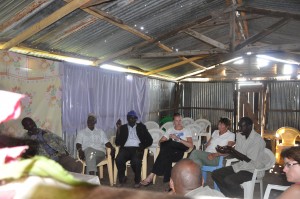 This summer PA-MOJA volunteers had an experience of how these beneficiaries are chosen in the community. PA-MOJA volunteers, Maureen Wright, Dawn Kane, Silvia Knittel, Alison Start, Erin Douglas, Pat Douglas, and Amanda Bankert, attended a community meeting and witnessed how the beneficiaries are chosen. The Ol Pejeta community staff, the community representatives chosen by the community members and the local leaders in the community (chiefs, councilors and pastors) sat together and discussed various needy families in their community. The aim of the meeting was to come up with one most needy family who would receive support from PA-MOJA. PA-MOJA volunteers had set aside funds to use in uplifting one of the most vulnerable families amongst the communities that surround the Ol Pejeta Conservancy. The same process is normally used in selecting the bursary beneficiary students both in high school and tertiary level every year.
This summer PA-MOJA volunteers had an experience of how these beneficiaries are chosen in the community. PA-MOJA volunteers, Maureen Wright, Dawn Kane, Silvia Knittel, Alison Start, Erin Douglas, Pat Douglas, and Amanda Bankert, attended a community meeting and witnessed how the beneficiaries are chosen. The Ol Pejeta community staff, the community representatives chosen by the community members and the local leaders in the community (chiefs, councilors and pastors) sat together and discussed various needy families in their community. The aim of the meeting was to come up with one most needy family who would receive support from PA-MOJA. PA-MOJA volunteers had set aside funds to use in uplifting one of the most vulnerable families amongst the communities that surround the Ol Pejeta Conservancy. The same process is normally used in selecting the bursary beneficiary students both in high school and tertiary level every year.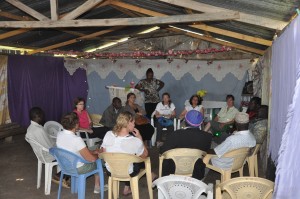
The local leaders together with the community elders had four families that they felt needed aid.
They then had to come up with a consensus on who is the most vulnerable.
The first family considered for support was made up of a single mother with four children. She also has a brother and a sister living with her since they are orphans. She is very poor and doesn’t have a job to earn a living. Her smallest child is only weeks old, and so she cannot go and work in people’s gardens, as has always been her routine in the past in order to be able to take care of her family. This situation, therefore, has led her to not be able to provide for her children. The siblings have had to practice begging from one homestead to the other for food. “This is a part time problem,” one of the elders said “as soon as she gets strong and as soon as her child grows to at least two months old, she will be able to resume her daily duties,” he added.
The second candidate presented was a 70 year-old grandmother living alone and with no one to take care of her. She has a grandson who has disappeared from home because of poverty and hunger immediately after grade 8 in the year 2012. She is partially blind. She depends on well wishers for a living. She is always given first priority when aid is brought to the village and so they felt that she is better off because even the neighbors always look after her.
The third family was a single mother and who is very elderly with a daughter and a son. They are very poor people. The mother and the daughter always go begging in order to earn a living. The daughter has not had a chance to go to school and the son was lucky to be chosen at the beginning of 2013 by the community as a PA-MOJA bursary student beneficiary. He had almost dropped out of school due to lack of fees and when the community leaders did the bursary beneficiary students selection for the year 2013, they selected him. Previously, he had always been in and out of school due to lack of fees. He is in grade 12 at Dol dol Boys secondary school. The elders and the leaders also felt that the family now has better hopes in future since they already have a sponsored student who they know will come into their aid once he completes school as he will be able to get himself a job and help his family.
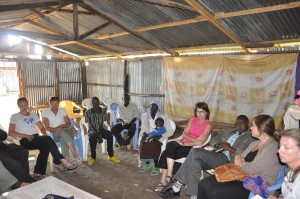
Finally, PA-MOJA volunteers were told of a family headed by a woman between 45-50 years old who has two children, a boy and a girl. This woman suffered an injury of a spear penetration through her ribs during the 1992 Molo land conflicts in Kenya.
Because of her injury, she has never been able to do any home upkeep, and she depends on her friends for her family’s survival. She lost her husband during the war and by then she was pregnant with her son Stephen. His birth required her to have surgery, which further added to her weak health. Her daughter later got married in a village called Kirinyaga in Central Kenya, but her husband was also killed during land disputes in the area where they had settled. She was finally chased away after the death of her husband since she was not of the tribe, a situation which forced her go back to her mother with three children. She then left her youngest child of now one and half years with her mother and has since gone to look for work to take care of her other two children far away from home.
Stephen completed grade 8 in the year 2012. He has since been taking care of the mother and his sister’s youngest child by going to work in other peoples gardens. Through this he earns some money to buy food for his family. He had lost hope of going to grade nine, though he had qualified with high marks. Since his family could not pay for his school fees, he therefore had no option but to quit school.
The PA-MOJA team then asked the community to select one of the families amongst the four families they had suggested. The elders then came to a conclusion of selecting Stephen’s mother since she was the most vulnerable and had no hope for anyone else to depend on.
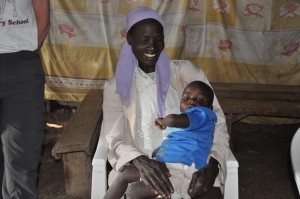
When PA-MOJA came to his family’s aid, Stephen received sponsorship to go to Endana High School. His mother was so happy with the decision made by the local leaders and the community elders. “My first priority is my son going to school and God will bless you abundantly” is what she was able to say when she was asked how she felt. PA-MOJA volunteers then interviewed her and asked her of her other priorities after her first. She explained through translations by Nancy, one of the community Programs staff at the Ol Pejeta Conservancy that she is so happy and would appreciate whatever other aid they would give her.
The team then had a chance to visit her house which is in Depatas village on the Northern approach of the Ol Pejeta Conservancy. They found that her semi permanent house was almost falling on one side. They therefore made a decision to renovate it for her. Stephen’s mother suggested that she will appreciate it if the house would be built semi-permanently since the land she lives on is communal and she might one time migrate to another location. She therefore said that she doesn’t need a permanent house.
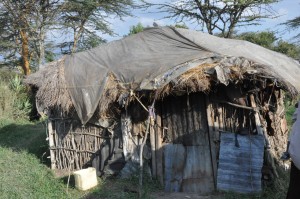
A communal land is land owned by the community with no title deeds; therefore, one has no right to claim its ownership. The team, through the help of the local leaders, purchased all the items needed for the house renovation and also paid for the workers to repair the house.
Stephen is now in form one at Endana secondary school, one of the PA-MOJA sister schools connected Burnaby South.
Emily Rosa Lerosion, Kenya
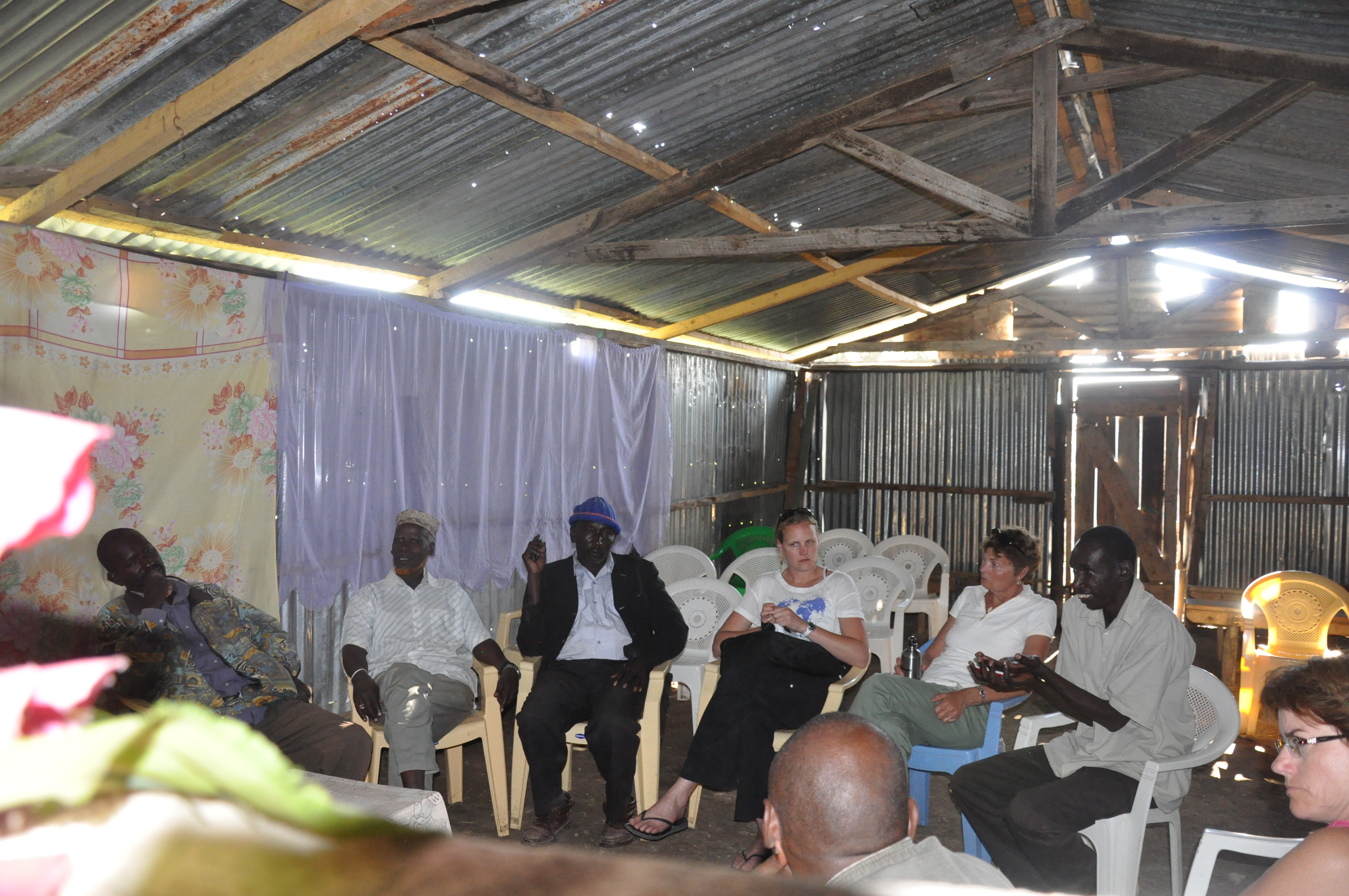
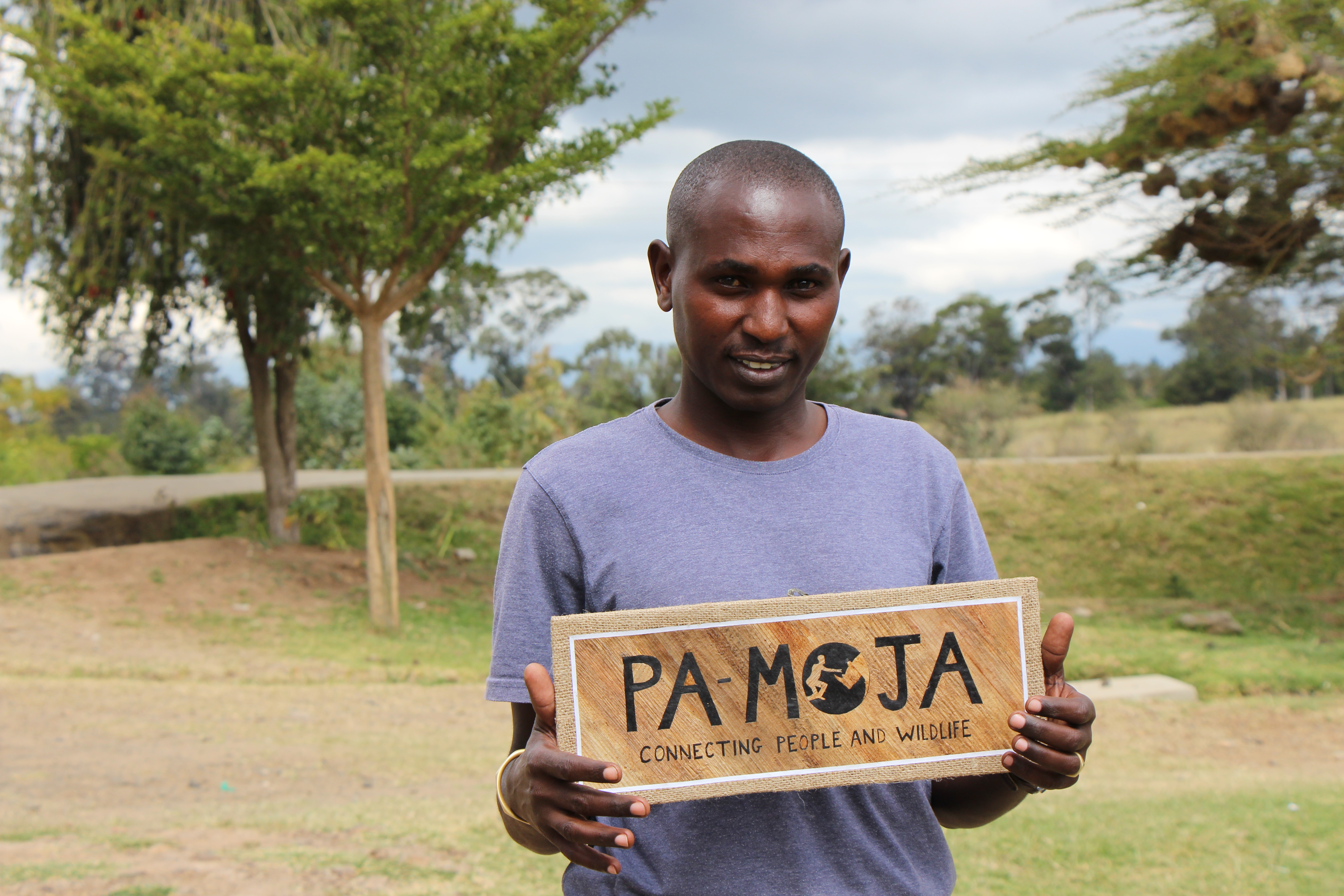
What a difficult decision. I applaud all the people who put in the time and effort to make this process work. I am happy PA-MOJA was able to provide support to Stephen’s family.
The community meeting with the elders was one of the most profound experiences that I have had as a volunteer. To listen to the elders speak on behalf of the families, and to come to an agreement without discord was truly amazing. Their ability to cooperate agreeably to achieve the most positive outcome was something that I wish our leaders here in the U.S. could witness as well!